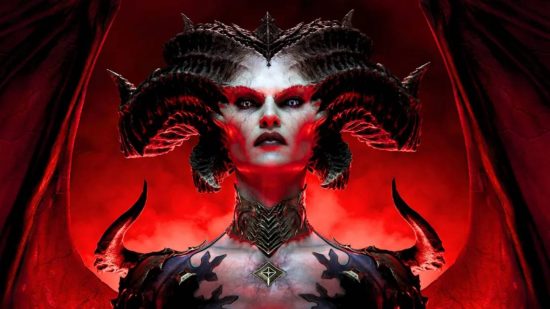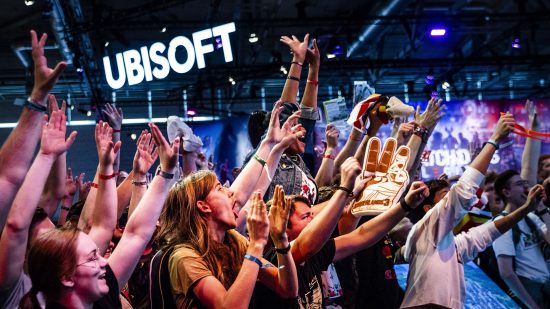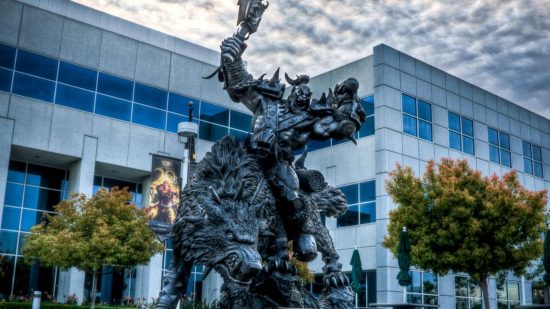Earlier today, the UK’s CMA approved the Microsoft Activision Blizzard merger. Having previously rejected the company’s bid to purchase the creator of Call of Duty, World of Warcraft, Diablo, and Overwatch in April 2023, Microsoft has since altered the terms of its proposed acquisition to fit the CMA’s requirements. The Microsoft Activision Blizzard merger is now closed and completed, as Microsoft Gaming CEO Phil Spencer says that “as one team, we’ll learn, innovate, and continue to deliver on our promise to bring the joy and community of gaming to more people.”
The controversy surrounding the deal stemmed from concerns over potential Xbox exclusivity for Activision Blizzard games, primarily its flagship FPS game series, Call of Duty, the latest installment of which, Call of Duty Modern Warfare 3, is set to launch in early November.

PlayStation creator Sony argued that the acquisition could result in a worse experience of Activision Blizzard games for PlayStation owners. While Sony and Microsoft were in talks with one another, Sony rejected a deal in January 2022 put to them by Microsoft that offered to keep Activision Blizzard games (including Call of Duty) on PlayStation until 2027.
Following email correspondence between former PlayStation CEO Jim Ryan and Microsoft Gaming CEO Phil Spencer, Ryan voiced public disapproval over the list of Activision Blizzard games that Microsoft would be willing to keep on PlayStation. “It was not a meaningful list,” Ryan claimed at the time. “This list represented a particular selection of older titles that would remain on PlayStation, for example Overwatch is on there but Overwatch 2 is not on there, the current version of the game.”
This perhaps prompted Sony’s lengthy March 7 document praising the CMA’s rejection of the merger. Noting that it remained “extremely sceptical that an agreement with Microsoft could be reached, much less monitored and enforced effectively,” the document expressed concerns over Microsoft strategies that would “withhold or degrade access to Activision content.”
And that’s a sentiment that’s echoed by a lot of gamers, too. While some have let the deal pass them by, others just want to play Call of Duty on PlayStation indefinitely and are clearly worried about the ramifications of the deal.
In December 21, 2022, a lawsuit out of Chicago saw a group of self-proclaimed ‘videogamers’ attempt to sue Microsoft for stifling “innovation” and “creativity.” The concerns echoed Sony’s, with the ‘videogamers’ claiming that the merger would “foreclose rivals, limit output, reduce consumer choice, raise prices, and further inhibit competition.”
Since then, Microsoft has signed deals with both Sony and Nintendo to ensure Call of Duty remains available to PlayStation and Switch players for the next ten years.
So what else prompted the CMA to change its mind? Well, Microsoft has amended several elements of the deal to work within the body’s specifications. First off, it has agreed to narrow some of its rights, such as Microsoft no longer being in a position to release Activision Blizzard games exclusively onto its streaming platform, Xbox Cloud Gaming, or in a position to exclusively control the licensing of ActiBlizz games for rival services.
Microsoft also proposed a deal effective at the closing of the merger that would transfer cloud streaming rights for existing and new Activision Blizzard games released over the next 15 years to game publisher Ubisoft. Notably, this would give Ubisoft the ability to offer ActiBlizz games to non-Windows cloud gaming services.
As a result, the CMA has greenlit the deal. “There have been significant changes to the proposed transaction as considered at the time of the final order, particularly in terms of the planned nature of the merger…which ensure that the competition concerns identified in the final report no longer arise,” Martin Coleman, chair of the Microsoft and Activision merger inquiry order subcommittee, writes.
“Therefore, the CMA considers that the merger…is unlikely to undermine the effectiveness of the final order in achieving its original aim to remedy the significant lessening of competition in the market for cloud gaming services in the UK and its resulting adverse effects as detailed in the final report.”
This is echoed by Sarah Cardell, CEO of the CMA. “The CMA’s position has been consistent throughout,” she says. “This merger could only go ahead if competition, innovation, and choice in cloud gaming was preserved. In response to our original prohibition, Microsoft has now substantially restructured the deal, taking the necessary steps to address our original concerns.”
Now that Microsoft has closed the deal, it will have access to some of the biggest games on the planet – primarily Call of Duty, of course, but also MMORPG behemoth World of Warcraft, and Diablo, which sees Diablo 4 Season 2 launch on Tuesday, October 17.
“I’ve long admired the work of Activision, Blizzard, and King, and the impact they’ve had on gaming, entertainment, and pop culture,” CEO of Microsoft Gaming Phil Spencer says. “Whether it was late nights spent playing the Diablo 4 campaign with friends from start to finish, gathering the entire family in the rec room for our weekly Guitar Hero night, or going on an epic streak in Candy Crush, some of my most memorable gaming moments came from experiences their studios have created. It is incredible to welcome such legendary teams to Xbox.
“As one team, we’ll learn, innovate, and continue to deliver on our promise to bring the joy and community of gaming to more people. As promised, we will also continue to make more games available in more places – and that begins now by enabling cloud streaming providers and players to stream Activision Blizzard games in the European Economic Area, a commitment made to the European Commission.
“Today we start the work to bring beloved Activision, Blizzard, and King franchises to Game Pass and other platforms. We’ll share more about when you can expect to play in the coming months. We know you’re excited – and we are too.”
Microsoft no doubt hopes its suite of Xbox blockbuster studios will release high-quality games that compel PlayStation owners to either make the move to Xbox, pick up an Xbox as a secondary console, or access the games via Game Pass and streaming.
It will also possibly put additional pressure on Sony to up its own first-party offerings to rival Xbox’s Activision Blizzard-developed games, be they existing releases and series or new IPs like the company’s upcoming survival game. This may not be a major issue right now for Sony, but when the next console generation rolls around and the average gamer is weighing up whether to purchase an Xbox or a PlayStation, the former’s new ownership of such major IP will inevitably be a deciding factor for some.
The merger will also have an effect on PC gaming. Activision Blizzard says that games including Call of Duty and Diablo will not appear on Game Pass in 2023, but that it may begin adding some of its biggest series to the Microsoft subscription service in 2024. A subscription to PC Game Pass costs $9.99 / £7.99 a month, meaning that, in the future, PC players may be able to play some of the biggest games in the world via a flat fee.
Microsoft’s acquisition of Activision Blizzard may also incentivize Sony to increase its efforts to release first-party games on PC, to boost competition on the platform. The Last of Us, Uncharted, God of War, and the Horizon series have all received ports in recent years, but PC players may receive even more former PlayStation exclusives as Sony looks to lure people away from the offerings of Game Pass. On the contrary, Sony may double down on exclusivity, limiting the reach of first-party games to compel players to buy a PlayStation console rather than investing in either the Xbox or a PC and a Game Pass subscription.




